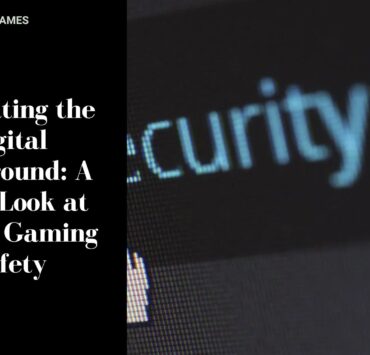In the world of gaming, we’re obsessed with mechanics. We learn the DPS rotations, the optimal builds, and the hidden exploits that give us an edge. We analyze patch notes and study frame data to understand the system and, ultimately, to master it. So why do so many of us treat casino games like a mysterious black box governed by pure luck? The truth is, casino games are just another system, with their own set of rules and mechanics.
Before we can even think about winning, we have to understand the main boss we’re up against: the house edge.
Table of Contents
ToggleWhat Exactly is the ‘House Edge’? (Think of it as the Game’s Core Difficulty)
The house edge is not a secret cheat code the casino uses. It’s a fundamental part of the game’s design, a built-in mathematical advantage that ensures the casino remains profitable over the long run. Think of it as the game’s core difficulty setting, one that’s permanently locked. For example, in roulette, there are 38 pockets (1-36, plus 0 and 00), but a winning bet on a single number pays out 35-to-1. That small difference is the house edge.
It’s a game of large numbers, much like the RNG that governs loot drops in your favorite RPG. While you might get a legendary item on your first try, the game’s code ensures that over millions of drops, the probability holds true. The house edge works the same way. It doesn’t guarantee you’ll lose any single hand, but it ensures that over thousands of hands, the casino will come out ahead. Understanding this concept is the first step from being a gambler to being a strategic player.
Now that we know the core mechanic, let’s start debunking some of the most common ‘lore’ you hear around the tables.
Myth #1: “I’m on a Hot Streak, I Can’t Lose!”
We’ve all felt it. That incredible run where every card is the right one, every bet pays off. It feels like the universe is on your side. This is known as the “hot hand fallacy,” the belief that a successful streak is likely to continue. Unfortunately, math doesn’t care about your feelings. Each hand of blackjack, each spin of the roulette wheel, is an independent event.
It’s like thinking that because you landed three critical hits in a row, the fourth attack is also guaranteed to be a crit. The game’s probability engine doesn’t remember your past successes. The odds of drawing a 10 are the same whether you won the last five hands or lost them. Believing in streaks is a sure way to make poor decisions and give back any winnings you’ve accumulated.
Okay, so luck isn’t a reliable strategy. But what about pure skill? This brings us to the legendary ‘exploit’ of card counting.
Myth #2: “Card Counting is Illegal and Only for Geniuses.”
Thanks to movies like 21, card counting has a reputation for being a forbidden, genius-level technique. Let’s clear this up: card counting is not illegal. It’s simply using your brain to play the game well. However, casinos are private businesses and can ask you to leave for any reason, including being too good at the game.
More importantly, it’s not about memorizing every single card. At its core, card counting is a system for tracking the ratio of high-value cards (like 10s and aces) to low-value cards left in the deck. When the deck is rich in high cards, the odds shift slightly in the player’s favor. It’s a high-skill strategy that requires immense concentration and practice, similar to reaching the top ranks in a competitive esports. It’s not magic; it’s just advanced data tracking.
If card counting is the ‘endgame raid,’ what’s the optimal ‘leveling build’ for the average player? It’s called basic strategy.
The Real ‘Cheat Sheet’: Using Basic Strategy to Lower the House Edge

For every possible combination of your hand and the dealer’s up-card in blackjack, there is one mathematically correct decision: hit, stand, double down, or split. This set of optimal plays is called “basic strategy.” It’s not a hunch or a gut feeling; it’s a proven system derived from computer simulations of millions of hands.
This is the ultimate form of min-maxing at the casino. By ignoring superstitions and consistently making mathematically correct plays, you are minimizing the game’s built-in difficulty. Unlike relying on gut feelings, a player who masters the game’s mechanics through a solid strategic approach can reduce the house edge from a typical 2% down to as low as 0.5% in some games. It won’t guarantee you win every time, but it gives you the best possible odds against the house and turns a game of pure chance into one of skill.
Frequently Asked Questions
Is the house edge the same for every casino game?
No, it varies significantly. Games like Keno and some slot machines can have a house edge of 15% or higher, making them very difficult to win in the long run.
Can you really make a living playing blackjack?
It is theoretically possible but extremely difficult.
Does online blackjack have the same odds as in a real casino?
Reputable online casinos use certified Random Number Generators (RNGs) to ensure the game is fair and the odds mimic a real, shuffled deck of cards.
Is there any real strategy for slot machines?
Not in terms of influencing the outcome of a spin. Slot machines are governed entirely by RNG.






